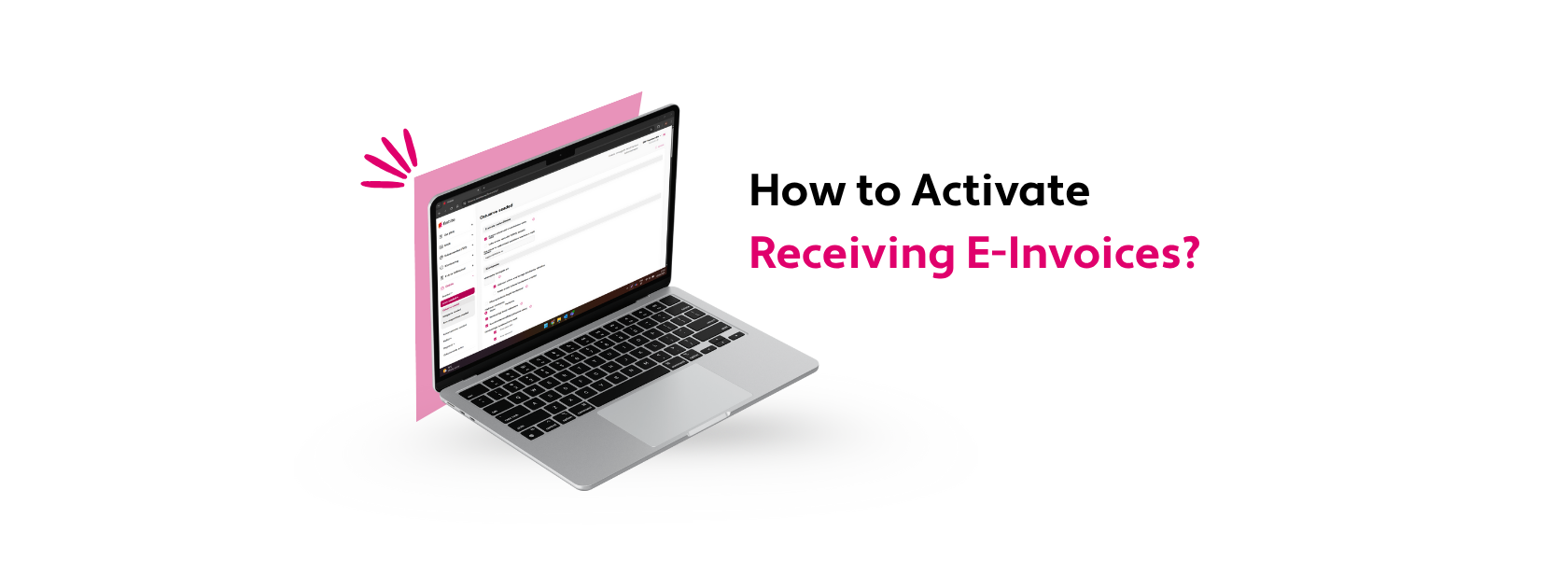
Estonia is a global leader when it comes to digital public services, with 100% of government services now available online. Everything from tax filing to voting can be done digitally.
This advanced digital environment also makes starting a business in Estonia a fast, straightforward process. Even non-residents can establish a company remotely through Estonia’s e-Residency program, which provides access to the country’s e-services.
In this article
Company formation in Estonia is simple, but the exact process can vary depending on your residency status and the type of company you want to start.
In this article, we’ll take a deeper look at the process. Whether you’re an Estonian citizen or a non-resident, we’ll help you understand the benefits, processes, and costs of registering a company in Estonia.
Benefits of opening a company in Estonia
There are many benefits to opening a business in Estonia. Estonia offers a clear, modern legal framework and consistently ranks high on global tax competitiveness indexes.
In addition, Estonia is an EU member state, which means opening up an Estonian company allows businesses to trade within the EU and gain access to over 440 million European consumers.
Some other benefits of opening a company in Estonia include:
- Low administrative costs: Starting a company in Estonia is fast, easy, and inexpensive. Creating a business in Estonia doesn’t require an upfront share capital contribution. In addition, the process can typically be done entirely online.
- No corporate tax on retained earnings: Estonian companies only pay corporate income tax when profits are distributed as dividends. Any profit that’s kept in the company for growth or investment remains untaxed.
- Easy VAT registration: Businesses can register to be a VAT payer in Estonia’s e-services environment.
Benefits of starting a business in Estonia as a digital nomad
Starting a business in Estonia comes with many benefits for digital nomads. Estonia’s e-Residency program allows non-residents to create and manage Estonian companies remotely.
When digital nomads become e-Residents, they get access to Estonia’s e-services. This online service environment minimizes paperwork associated with starting a company from abroad. For example, e-residents can use digital signatures, online banking, and digital tax filing to start and manage their business remotely.
How to start a company in Estonia
There are several ways to start a company in Estonia, depending on resident status, physical location, and the type of business you plan on opening.
Registering a company in Estonia through the e-Business Register
The easiest way to start a company in Estonia is to register through Estonia’s e-Business Register. Establishing a company through the Estonian business registry typically takes only a few hours.
However, logging in to Estonia’s company registration portal and registering a business online requires an Estonian ID card, Mobile-ID, or Smart-ID.
Alternatively, e-Residents can use an Estonian e-Residency card (digital ID) to start a business through the Estonian e-Business Register. This digital ID allows non-residents to sign documents digitally and obtain access to Estonia’s e-services.
Through Estonia’s e-Business Register, it’s possible to establish:
- Private limited companies
- General partnerships
- Limited partnerships
- Non-profit associations
- A business as a self-employed person
Private limited companies (OÜ) are the most common type of business registered in Estonia. When registering a private limited company electronically, the applicant must provide details regarding the founding members and the company they want to open. Applicants must also pay the state fee and make the minimum share capital contribution (€0.01 per shareholder).
When registering a business through the Estonian company register portal, all persons related to the establishment of the company must be able to digitally sign the application and related documents.
Registering a company in Estonia through a notary
Applicants who are unable to establish a company electronically can open a business in Estonia via a notary. For example, non-residents without an e-Residency digital ID card must register their company via a notary or a representative with a notarized power of attorney.
Registering a company through a notary usually takes 2 to 3 days. The process is slower, but Estonian company formation via a notary is still relatively straightforward. First, the person starting the company must make the share capital contribution and pay the state fee. Then, together with the notary, they must submit the following documents to the Commercial Register:
- Application
- Memorandum of Association
- Articles of association
- Information on communications devices
- Bank certificate proving the deposit of share capital
- Certificate showing payment of state fee
When using a notary, applicants must either visit the notary’s office in Estonia or appoint a service provider to represent them by power of attorney.
Registering as a VAT payer in Estonia
Businesses with a taxable annual turnover over €40,000 per calendar year must register as VAT payers. Companies must file their registration application with the Estonian Tax and Customs Board within three business days of when the €40,000 threshold is met.
The transfer and sale of non-current assets are not considered taxable annual turnover. Businesses are also not required to register as VAT payers if their entire taxable turnover is made up of turnover taxable at a 0% rate.
Costs of setting up a company in Estonia
The primary cost of setting up a company in Estonia is the state fee, which depends on the type of business being established. When creating a FIE, general partnership, or limited partnership, applicants must pay a state fee of €20. Alternatively, a state fee of €200 applies when starting:
- Private limited companies
- Public limited companies
- Commercial associations
Applicants have the option of establishing a company under an expedited procedure for a fee of €265. Other costs to consider include the minimum share capital contribution (€0.01 per shareholder) and notary fees (typically €50 to €200).
Choosing a provider for mandatory electronic invoicing
E-invoicing for B2G transactions has been mandatory in Estonia since 2019. In addition, according to a recent amendment to the Estonian Accounting Act, both private and public sector companies in Estonia now have the right to request to receive e-invoices.
While this isn’t an absolute mandate, it’s a step towards the complete transition to e-invoicing in Estonia and throughout Europe. This shift towards e-invoicing makes it essential to find a reliable e-invoicing provider.
Finbite’s e-invoicing software is one of the best options for companies in the Baltics. The all-in-one invoicing platform allows users to send and receive e-invoices in any format (incl Peppol for cross-border transactions). Businesses can also use Finbite to streamline every aspect of invoicing, including expense reporting, invoice confirmation, and digital archiving.
What is an Estonian e-Residency?
E-Residency is a program that allows non-residents to start a business through Estonia’s digital environment. Foreign citizens can apply for an e-Residency digital ID card, which gives them access to Estonia’s e-services.
With access to Estonia’s digital environment, non-residents can sign documents digitally and establish and manage an Estonian company entirely online. E-Residency also allows non-residents to handle banking and submit taxes remotely, without being physically present in Estonia. It also allows non-residents to open a company in Estonia without a notarized power of attorney, making the process much easier.
How to start a business through Estonia’s e-Residency program
Company incorporation in Estonia through the e-Residency program is relatively straightforward:
- Become an e-Resident: The first step in opening a company in Estonia through the e-Residency program is becoming an e-Resident. Details on the application process can be found here.
- Find an Estonian contact person: To establish a company in Estonia as a non-resident, applicants must find a contact person in Estonia to represent their company. This person will receive official documents and communications for the company and acts as a link to Estonian authorities. If an applicant doesn’t have a contact person, some providers offer this service for approximately €200 to €400 per year.
- Registering a business in Estonia: After obtaining an e-Residency card and finding a contact person, applicants can log in to the e-Business Register to establish their company. Non-residents must pay the state fee of €265 to register their private limited company (the most popular business entity registered by e-Residents).
- Open a business bank account: The best option for e-Residents is to use a payment institution (fintech) for their banking needs. These accounts can be opened entirely online and often offer more flexible terms than Estonian banks. After opening a bank account, it’s possible to start receiving payments and paying sales invoices.
FAQ: Starting a business in Estonia
What are Estonia’s digital nomad visa requirements?
Estonia’s digital nomad visa (DNV) is for remote workers, freelancers, and entrepreneurs who want to work legally in Estonia while being employed or running a business outside the country. To obtain an Estonian digital nomad visa, applicants must primarily use telecommunications technology and must be able to perform work duties regardless of physical location. Their income must meet the minimum threshold of €4,500 (net) per month.
What is the Estonian commercial register?
The Estonian commercial register is Estonia’s official database that records, maintains, and publishes information about legal persons under Estonian law. This includes private limited companies (OÜ), public limited companies (AS), and general and limited partnerships. The purpose of the commercial register is to collect, retain, and disclose essential business information to ensure transparency and legal certainty.
What is the tax rate for e-Residency in Estonia?
Businesses established under Estonia’s e-Residency program must follow the same tax rate as Estonian businesses. The general VAT rate is 24%, which all VAT-registered businesses must charge on taxable supplies in Estonia. In addition, Estonia’s corporate income tax rate on distributed profits is 22%.
How much does it cost to start a business in Estonia?
The cost of Estonian company registration depends on the type of business. There is a state fee of €200 when opening a private limited company, public limited company, or commercial association. For a FIE, general partnership, or limited partnership, there is a state fee of €20. e-Residents must pay a fee of €265 to register a private limited company in Estonia.
Start e-invoicing with Finbite
Having the right e-invoicing solution is crucial when starting an Estonian company. Mandatory e-invoicing for B2G transactions is common throughout the EU, and many countries are moving to mandatory B2B e-invoicing. Finbite streamlines the entire invoicing process and helps businesses send and receive e-invoices over secure networks like Peppol.
With Finbite, Estonian businesses can set up invoice confirmation circles to make sure only legitimate e-invoices are confirmed. The software also offers digital archiving, real-time reports, and seamless integrations with popular software in the Baltics.
Get started with Finbite today to start sending and receiving e-invoices.





